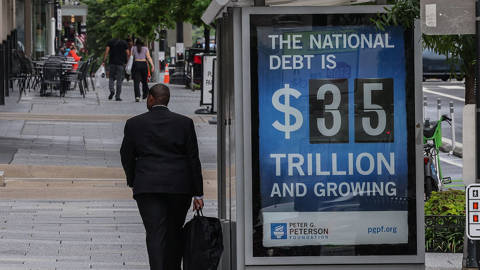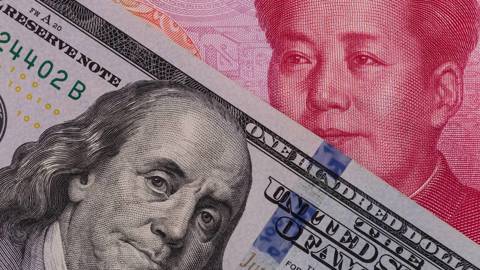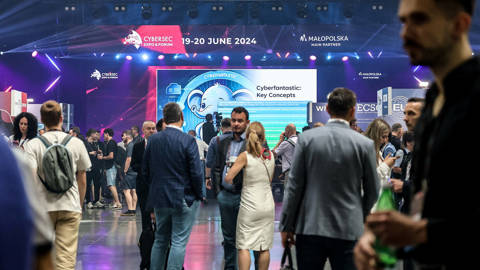For centuries, governments have used prizes to spur innovative research that yields creative solutions to global challenges. Now the world needs the same kind of inspired leadership to address the twenty-first century’s most pressing challenge: ensuring access to sustainable energy for all.
VIENNA – The world faces two looming, interconnected energy challenges: how to provide reliable access to modern energy services to the one in five people worldwide who do not have it, while minimizing the damaging impact of climate change by reducing carbon emissions. Surmounting these challenges requires finding more diverse, cleaner energy sources, which implies the need for expanded funding and incentives for research and development of clean technology.
Free-market incentives are often viewed as the main catalyst for such solutions. But, while market forces reward innovation and creativity, their impact is substantially weakened in a global economy plagued by slow, uneven growth. Given this, it is up to governments to stimulate and support the development of critical energy capabilities by rewarding innovation.
For centuries, governments have used prizes to spur innovative research that yields creative solutions to pressing global challenges. Such prizes reflect genuine global leadership: transforming a major challenge into an opportunity to facilitate progress toward a better future.
Eighteenth-century British leadership provides a case in point. In 1714, seven years after one of the worst naval accidents in the history of Britain’s Royal Navy, the United Kingdom launched the Longitude Prize, a £20,000 reward (equal to $5 million today) for developing a simple and practical method to determine a ship’s longitude reliably.
At the time, maritime navigation was based on a combination of science, experience, and luck, making it difficult, expensive, and dangerous, especially for those – such as the British government – bearing the financial burden of devastating shipwrecks and lost fleets.
Mariners had long known that, to determine their precise location, they needed to compare the time aboard ship and the time at the home port. But, while they could figure out the former by watching the sun, clocks were not accurate on ships at sea, so they were unable to track the time elsewhere.
Even after the prize spurred scientists, inventors, and engineers from all walks of life into action, it took nearly a half-century for John Harrison, an English carpenter-turned-clockmaker, to win. Motivated by the prospect of a handsome reward, Harrison worked for decades to create the marine chronometer, a timepiece capable of keeping accurate time at sea over the course of a long voyage, enabling sea captains to plot their course accurately. The innovation revolutionized nautical and, later, aerial navigation, and served as a boon to British naval and commercial dominance.
Similarly, in 1795, the French government, with an army debilitated more by hunger than by enemies, offered prizes to anyone who could develop an effective food-preservation method. After experimenting for 15 years, the Parisian Nicolas Appert won the prize with his ground breaking technique for preserving food in glass jars. England’s Peter Durand subsequently built upon Appert’s method by using metal cans.
A half-century later, France’s Royal Academy of Sciences offered a cash prize to the scientist who could produce the best proof for or against spontaneous generation. The award both catalyzed and subsidized the work of the chemist and bacteriologist Louis Pasteur, whose breakthrough discoveries led him to develop revolutionary methods – including the process that came to be known as pasteurization – for the sanitary production and preservation of food.
In order to tackle the twenty-first century’s most pressing challenge – providing access to sustainable energy for all – the world needs the same inspired leadership and long-term vision that spurred innovations in maritime navigation and food preservation. The United Arab Emirates – where projected electricity demand will more than double by 2030 – is among the countries that are rising to the occasion.
The UAE enjoys substantial hydrocarbon resources, with oil and gas output accounting for 45% of GDP and 80% of national income, and fueling the country’s economic growth. Indeed, energy has enabled the UAE to become one of the Middle East’s most developed economies – and thus has played a crucial role in securing the country’s global standing. Nonetheless, its leaders have recognized the need to secure their country’s future by diversifying its energy sources; as a result, the UAE has emerged as a pioneer in the renewable-energy revolution.
The UAE’s toolkit for creative solutions includes the Zayed Future Energy Prize, an annual award for achievement in developing and deploying renewable energy and sustainable technologies. Since its launch in 2008, nearly $10 million has been awarded for innovations that have changed the lives of people worldwide.
In January, during Abu Dhabi Sustainability Week, the UAE honored eight winners in five recipient categories with prizes totaling $4 million, rewarding proven innovators and giving them the financial support that they need.
Global leaders should follow such examples and provide the needed investment and incentives to support innovation in both the public and private sectors. In this way, a brighter, cleaner future can be secured for all.
Read more from our "The Innovation Revolution" Focal Point.










VIENNA – The world faces two looming, interconnected energy challenges: how to provide reliable access to modern energy services to the one in five people worldwide who do not have it, while minimizing the damaging impact of climate change by reducing carbon emissions. Surmounting these challenges requires finding more diverse, cleaner energy sources, which implies the need for expanded funding and incentives for research and development of clean technology.
Free-market incentives are often viewed as the main catalyst for such solutions. But, while market forces reward innovation and creativity, their impact is substantially weakened in a global economy plagued by slow, uneven growth. Given this, it is up to governments to stimulate and support the development of critical energy capabilities by rewarding innovation.
For centuries, governments have used prizes to spur innovative research that yields creative solutions to pressing global challenges. Such prizes reflect genuine global leadership: transforming a major challenge into an opportunity to facilitate progress toward a better future.
Eighteenth-century British leadership provides a case in point. In 1714, seven years after one of the worst naval accidents in the history of Britain’s Royal Navy, the United Kingdom launched the Longitude Prize, a £20,000 reward (equal to $5 million today) for developing a simple and practical method to determine a ship’s longitude reliably.
At the time, maritime navigation was based on a combination of science, experience, and luck, making it difficult, expensive, and dangerous, especially for those – such as the British government – bearing the financial burden of devastating shipwrecks and lost fleets.
Mariners had long known that, to determine their precise location, they needed to compare the time aboard ship and the time at the home port. But, while they could figure out the former by watching the sun, clocks were not accurate on ships at sea, so they were unable to track the time elsewhere.
BLACK FRIDAY SALE: Subscribe for as little as $34.99
Subscribe now to gain access to insights and analyses from the world’s leading thinkers – starting at just $34.99 for your first year.
Subscribe Now
Even after the prize spurred scientists, inventors, and engineers from all walks of life into action, it took nearly a half-century for John Harrison, an English carpenter-turned-clockmaker, to win. Motivated by the prospect of a handsome reward, Harrison worked for decades to create the marine chronometer, a timepiece capable of keeping accurate time at sea over the course of a long voyage, enabling sea captains to plot their course accurately. The innovation revolutionized nautical and, later, aerial navigation, and served as a boon to British naval and commercial dominance.
Similarly, in 1795, the French government, with an army debilitated more by hunger than by enemies, offered prizes to anyone who could develop an effective food-preservation method. After experimenting for 15 years, the Parisian Nicolas Appert won the prize with his ground breaking technique for preserving food in glass jars. England’s Peter Durand subsequently built upon Appert’s method by using metal cans.
A half-century later, France’s Royal Academy of Sciences offered a cash prize to the scientist who could produce the best proof for or against spontaneous generation. The award both catalyzed and subsidized the work of the chemist and bacteriologist Louis Pasteur, whose breakthrough discoveries led him to develop revolutionary methods – including the process that came to be known as pasteurization – for the sanitary production and preservation of food.
In order to tackle the twenty-first century’s most pressing challenge – providing access to sustainable energy for all – the world needs the same inspired leadership and long-term vision that spurred innovations in maritime navigation and food preservation. The United Arab Emirates – where projected electricity demand will more than double by 2030 – is among the countries that are rising to the occasion.
The UAE enjoys substantial hydrocarbon resources, with oil and gas output accounting for 45% of GDP and 80% of national income, and fueling the country’s economic growth. Indeed, energy has enabled the UAE to become one of the Middle East’s most developed economies – and thus has played a crucial role in securing the country’s global standing. Nonetheless, its leaders have recognized the need to secure their country’s future by diversifying its energy sources; as a result, the UAE has emerged as a pioneer in the renewable-energy revolution.
The UAE’s toolkit for creative solutions includes the Zayed Future Energy Prize, an annual award for achievement in developing and deploying renewable energy and sustainable technologies. Since its launch in 2008, nearly $10 million has been awarded for innovations that have changed the lives of people worldwide.
In January, during Abu Dhabi Sustainability Week, the UAE honored eight winners in five recipient categories with prizes totaling $4 million, rewarding proven innovators and giving them the financial support that they need.
Global leaders should follow such examples and provide the needed investment and incentives to support innovation in both the public and private sectors. In this way, a brighter, cleaner future can be secured for all.
Read more from our "The Innovation Revolution" Focal Point.